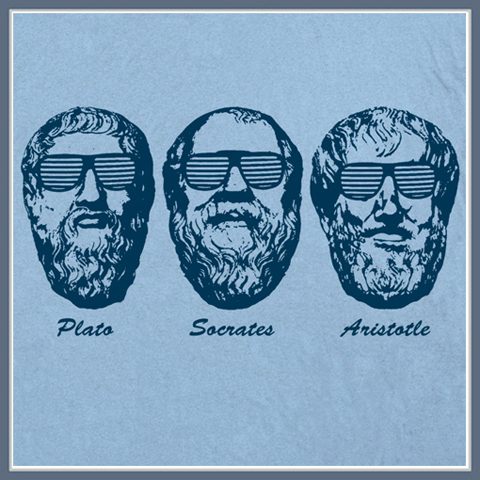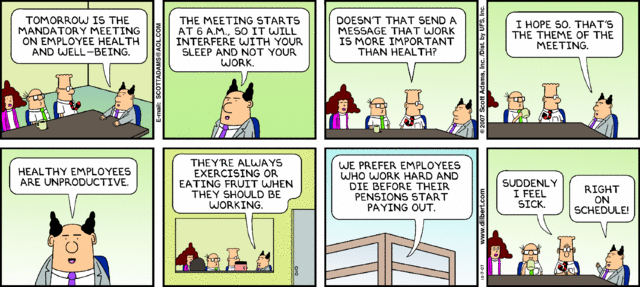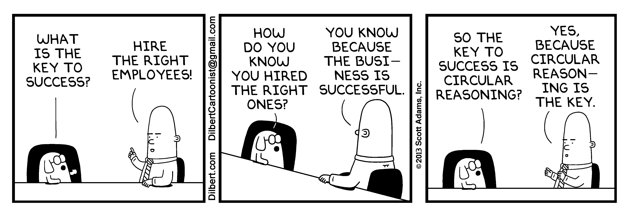4 Lifehacks From Ancient Philosophers That Will Make You Happier
u've probably heard about Stoics or Stoicism -- and most of what you know is wrong. They weren't joyless bores. The ancient Stoics were the first lifehackers: The Original Gangsters of Making Life Awesome. Via A Guide to the Good Life: The Ancient Art of Stoic Joy: The Stoics...were very much interested in human psychology and were not at all averse to using psychological tricks to overcome certain aspects of human psychology, such as the presence in us of negative emotion. Awesome. But…
6 minutes
Interesting People: 7 Things They All Have In Common
ve posted a lot of research from experts on getting people to like you, being influential and having great conversations. What's the best way to use all this information to be more interesting? 1) First, Don't Be Boring Sometimes the best offense is a good defense. Look at it like the Hippocratic Oath of conversations: Do no harm. We're all terrible at realizing when we bore others because, well, we all think we're just fascinating. The #1 tip for never boring…
4 minutes
The Single Most Proven Way To Get Smarter And Happier
s, It's This Simple Many of the fixes for our problems aren't complex -- something that's clear in the things I recommend people do every day. What's a scientifically validated way to get smarter, happier, healthier and calmer? Stop reading this right now and go for a walk. It's that simple. Here's why. Exercise Powers The Body -- And The Mind They used to say you don't grow new brain cells. They were wrong. Via Spark: The Revolutionary New Science…
5 minutes
The Way To Happiness: Remember The 4 P’s
ere's an overwhelming amount of happiness research. Forget incorporating it all into your life -- merely remembering it is daunting enough. I like to keep it simple: Remember the 4 P's. Purpose Perspective People Play Work those into every day and you'll be smiling more. Purpose This one gets short shrift in the modern era so we'll put it first. You don't need to live and die by the Bushido code but the best lives have purpose. Via The 100…
6 minutes
20 Simple Secrets Of Happy Families – All Backed By Science
bsp; Where You Live Matters Via 100 Simple Secrets of Happy Families: People who are highly satisfied with their neighborhood are 25 percent more likely to be highly satisfied with their family life. -Toth, Brown, and Xu 2002 Open Communication Is A Must Via 100 Simple Secrets of Happy Families: The less open the communication between adults and children, the more pessimistic the children are likely to be and the less likely the children are to feel secure in their family relationship.…
5 minutes
9 Steps To New Year’s Resolutions That Last Longer Than New Year’s Day
is year I resolve to... Hold on a second. Let's not join the lemmings who screw this up every year. 88% of people fail to achieve their New Year's Resolutions. There is a ton of science on this subject so if we want to do New Year's Resolutions, let's do them right. First, Stop Fantasizing Do fantasies give you the energy to achieve your goals? Nope. Fantasies steal the energy you need to achieve your goals: Positive fantasies allow people to mentally…
5 minutes
Happiest People On Earth: 6 Secrets To Learn From Them
lationships, Relationships, Relationships What happens when you look at the happiest people and scientifically analyze what they have in common? Researchers did just that. There was a clear answer to what differentiated these people from everyone else -- and it wasn't money, smarts, age, gender or race. It was strong social relationships. Via The Happiness Advantage: The Seven Principles of Positive Psychology That Fuel Success and Performance at Work: Turns out, there was one—and only one—characteristic that distinguished the happiest 10…
7 minutes
What Do Successful People Have In Common? 8 Things.
sy Busy Daily Rituals: How Artists Work, examines the work habits of over 150 of the greatest writers, artists and scientists. What did they all have in common? A relentless pace of work. Via Daily Rituals: How Artists Work “Sooner or later,” Pritchett writes, “the great men turn out to be all alike. They never stop working. They never lose a minute. It is very depressing.” What did Stanford professor Jeffrey Pfeffer find when he looked at high achievers like LBJ and Robert Moses? 60-65…
6 minutes








